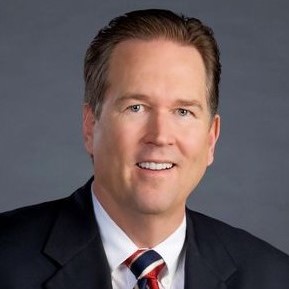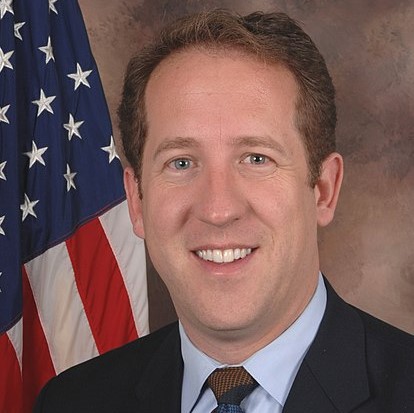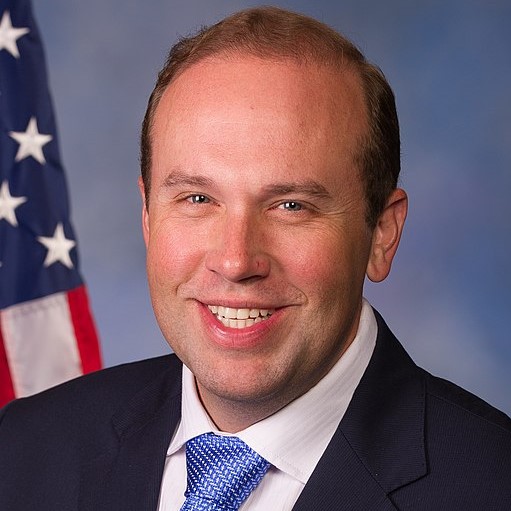TAX TIDBIT
Race to Replace Brady: New Challenger. Rep. Jason Smith (R-MO) is the latest Republican seeking to replace the retiring House Ways and Means Committee ranking member and former chair, Kevin Brady (R-TX), as the top Republican on the tax writing panel.
A Ways and Means member, Smith also serves as ranking member of the House Budget Committee. But with Republicans well positioned to regain control of the House, Smith is eyeing the Ways and Means Committee gavel, which has jurisdiction over tax, trade and health issues. As the third to seek the post, he will be competing against Reps. Vern Buchanan (R-FL) and Adrian Smith (R-NE), both of whom are more senior than Smith on committee.
Below is an overview of each candidate, including the Ways and Means subcommittees on which they sit and a description of their prominent legislation that has been referred to the committee.
|
Vern Buchanan (R-FL) Subcommittees:
Tax Legislation:
Other Committees:
|
Adrian Smith (R-NE) Subcommittees:
Tax Legislation:
Other Committees:
|
Jason Smith (R-MO) Subcommittees:
Tax Legislation:
Other Committees:
|
LEGISLATIVE LOWDOWN
New White House BBBA Plan. The White House has a new plan for negotiating the Build Back Better Act (BBBA) with hopes of gaining the support of Sen. Joe Manchin (D-WV). Under the new strategy, the White House is aiming to prioritize deficit reduction—a top concern for the debt- and inflation-conscious Manchin—to push the package across the finish line. In the words of one person familiar with White House thinking: "A lot of people in the White House are spending time looking at what they can do to make deficit reduction central to Build Back Better, with a strategy of appealing to an audience of one."
To meet the budget reduction objectives, the package could retain the revenue-raising individual and business taxes that passed under the House version while also reducing overall spending. Cuts to the existing package could come from programs Manchin has opposed, such as the expansion of Medicare to include dental, vision and hearing coverage; paid family leave; and proposed expansions to the Child Tax Credit. Manchin has said these programs are too costly and has noted that there are bipartisan solutions for some of these priorities. However, discussions are preliminary, and how exactly the package might be retooled remains unclear. At the same time, Senate Finance Committee Chair Ron Wyden (D-OR) suggested last week that there is growing support for a package that would focus on expanding the Affordable Care Act, prescription drug reform, climate change and tax policies to reduce the deficit.
Manchin has not indicated whether he would support such a package. He has, however, long supported deficit reduction and recently said that the idea is "music to my ears." He added: "Deficit reduction, inflation, being fiscally responsible—sounds like something we should be talking about!" However, even if Manchin ultimately supports a more condensed package, the reduced spending could risk the support of some progressive House Democrats, thereby threatening overall congressional approval.
In terms of timing, the absence of Sen. Ben Ray Luján (D-NM), who suffered a stroke earlier this year, means Democrats have only 49 senators able to vote. Because of this, unless any Senate Republicans abstain from voting, Democrats will be unable to approve any BBBA package, assuming Republicans are unanimously opposed to the package. Luján's recovery is reportedly going well, but even so, his scheduled return to D.C. is still a few weeks away.
Senators Eye Final COVID Relief Package. Over the past several weeks, Sens. Ben Cardin (D-MD) and Roger Wicker (R-MS) have led bipartisan Senate negotiations around a COVID-19 relief package that would provide financial assistance to restaurants and other businesses that have been hurt during the latest COVID-19 variants. According to Cardin, the group has agreed on a package they think would win the support of a filibuster-proof majority in the Senate.
While the contents of the package remain largely unknown, Cardin has said the cornerstone of the package will be a replenishment and slight expansion of the Restaurant Revitalization Fund to include "similar type[s] of businesses," such as gyms and hotels that were ineligible for the initial fund.
Now, Cardin wants to attach that agreement to fiscal year 2022 appropriations, which lawmakers will seek to pass in the coming weeks. For instance, Cardin recently said "the next train looks like it's going to be the omnibus, so yes I'm pushing hard to include it in the omnibus."
Taxpayer Advocate Testifies on Filing Season Challenges. The House Ways and Means Subcommittee on Oversight held a hearing last week on the challenges facing taxpayers during the current tax filing season, which began on Monday, Jan. 24. Testifying before the committee was National Taxpayer Advocate Erin Collins, who explained that the most pressing issues facing taxpayers include difficulty connecting with Internal Revenue Service (IRS) personnel because of poor customer service, inadequate online tools and delays caused by the processing backlog.
To address these shortcomings, Collins made several recommendations to the IRS and Congress. She first suggested the IRS allow taxpayers to communicate directly with the IRS through secure email, leverage scanning technology, expand access to e-filing and use "customer callback" technology. She recommended Congress provide the IRS with sustained, multiyear funding and refrain from changing the Internal Revenue Code just before or during the filing season.
Republicans and Democrats expressed their support for clearing the existing IRS backlog and ensuring ease of filing for their constituents. However, whereas Democrat members emphasized the need for multiyear funding to address the modernization of IRS processes and technology, Republicans maintained that a lack of funding was not the central issue.
Collins will testify again Thursday, this time before the Senate Finance Committee. She will be joined by two other witnesses: Jessica Lucas-Judy, director of strategic issues at the U.S. Government Accountability Office, and Jan Lewis, who chairs the Tax Executive Committee at the American Institute of CPAs.
The Brownstein Tax Policy Group followed the Ways and Means hearing closely and published a readout, which can be found here.
Extenders Unlikely to be Attached to the Government Funding Bill. Congress is poised to avert a government shutdown this week by passing a three-week stopgap measure to prolong government funding. The continuing resolution will extend current government funding levels to March 11, which will allow appropriators to hammer out the final details of an omnibus package to fully fund the government.
Lawmakers are expecting to make significant progress on a final deal this week, with Senate Appropriations Committee Chair Pat Leahy (D-VT) saying an agreement on topline spending is "just about there." Sen. Shelley Moore Capito (R-WV), an appropriator, said she expects a topline figure to be reached this week, a sentiment echoed by fellow panelist Sen. Jerry Moran (R-KS).
While tax committee members considered whether to use the package to extend 41 tax provisions that expired last year ("tax extenders"), this seems unlikely. Senate Finance Committee members discussed the topic last week, with committee chair Ron Wyden (D-OR) saying there are "a lot of moving pieces" and that there are "a variety of issues that relate to the omnibus, and placing those pieces of the tax puzzle is what we'll be all about in the next few months."
Various committee members have expressed an interest in specific issues. For example, Sen. Bob Menendez (D-NJ), said he will be advocating for an extension of the "rum cover over" provision. Fellow panelist Sen. Bill Cassidy (R-LA) said he would like to amend the section 45Q carbon sequestration credits regulation. Other tax provisions may simply not be revived, such as the Employee Retention Tax Credit, which was a COVID-19 era break.
As of this writing, it seems more likely that extenders will be part of an end-of-year deal during the lame duck session.
1111 CONSTITUTION AVENUE
Tax Filing Season Check-in. In the first 10 days of the tax filing season, which opened on Monday, Jan. 24, the IRS received 16.7 million individual tax returns and processed about 13 million, according to IRS statistics released last week. These new returns will be added to the 24 million that have amassed in the processing backlog.
The vast majority of returns—about 16 million—were submitted electronically through e-file. Over the same period, the IRS issued about 4.3 million refunds, most of which were delivered via direct deposit. The average refunds totals about $2,200, around $600 below last year's average.
Taxpayer Relief Latest. The IRS took additional steps last week to provide taxpayer relief. On Wednesday, the IRS announced it would suspend more than 12 additional taxpayer letters and notices, among which are balance due notices and unfiled tax return notices. According to the IRS, although some taxpayers may still receive these notices throughout the next few weeks, they will be "temporarily stopped until the backlog is worked through." IRS Commissioner Charles Rettig hinted at potentially more relief, saying the agency's "efforts are not limited to suspension of these additional letters and the possibility of similar actions going forward."
On Monday, Feb. 14, the IRS announced additional taxpayer assistance by launching a special new page on IRS.gov that will "provide the latest details and information affecting the 2022 filing season and ongoing efforts by the agency to address the inventory of previously filed tax returns." The new page will also contain " special tax season alerts," which will also be available through the agency home page and social media channels.
ID.me Probe Continues. In addition to the House Ways and Means Committee and the Senate Finance Committee, both of which have primary jurisdiction over the IRS, other congressional committees have begun exploring the agency's relationship with facial recognition company ID.me. The Senate Commerce Committee, for example, has used its jurisdiction over data privacy concerns to look into the issue. The latest to join the fray is the House Oversight and Reform Committee, which sent a letter to IRS Commissioner Charles Rettig last week.
The letter, signed by committee Chair Carolyn Maloney (D-NY), revealed that the committee, which has jurisdiction over government operations, received a staff briefing from "senior IRS officials" on Friday, Feb. 4. While Maloney welcomed the agency's decision to discontinue its engagement with the company, she nevertheless remains "concerned about the ongoing impact on the millions of Americans who have already turned over their biometric data to a private company as well as the potential costs to American taxpayers given the agency's about-face on this multimillion-dollar contract."
Maloney said the IRS briefing "raised new concerns," including the fact that 7 million Americans had already been directed by the IRS to sign up with ID.me and that ID.me "will continue to possess [this taxpayer biometric information] for seven years before the IRS can request for the information to be deleted." Maloney thus posed several questions to the IRS, including how it plans to "instruct ID.me to destroy the biometric data" that it collected from taxpayers and how the agency plans to follow-up with the company to ensure that any data not destroyed is properly safeguarded.
GLOBAL GETDOWN
Shambaugh: Potential International Treasury Post Nominee. The Biden administration is reportedly considering Jay Shambaugh to serve as under secretary for international affairs at the Department of the Treasury. Shambaugh is currently a professor of economics and international affairs in the Elliott School of International Affairs at George Washington University and is known for his involvement with The Hamilton Project, an initiative within the Brookings Institution that publishes policy proposals that aim to promote economic growth.
He has held many academic posts throughout his career, including as a professor at Dartmouth College and as a research fellow at the National Bureau of Economic Research. According to reports, his research has focused on the intersection of exchange rate regimes and monetary policy, "capital flows and trade flows" and "international reserves holdings and the global effects of U.S. fiscal policy."
He has also served in many governmental capacities, including as chief economist for the Council of Economic Advisers during the Obama administration and as part of the Biden transition team.
The under secretary for international affairs will be instrumental as the Biden administration coordinates with other countries and the Organisation for Economic Co-operation and Development on the Inclusive Framework. The post, which requires Senate confirmation, is currently held by Andy Baukol in an acting capacity.
AT A GLANCE
- Budget Surplus. January 2022 marked the first time the federal government ran a budget surplus since September 2019. The combination of reduced COVID-19 pandemic payments and increased revenue from broadband spectrum auction proceeds played a significant part in driving the surplus.
- Democrats Seek Gas Tax Elimination. Sens. Mark Kelly (D-AZ) and Maggie Hassan (D-NH) introduced the Gas Prices Relief Act last week. The bill would temporarily suspend the federal gas tax until 2023.
BROWNSTEIN BOOKSHELF
- Lawmakers Call for Taxpayer Relief. A group of Senate Republicans sent a letter last week to Treasury Secretary Janet Yellen and IRS Commissioner Charles Rettig urging the Biden administration to take a number of actions to provide taxpayer assistance. For instance, the lawmakers urged the IRS to delay the collection process, expedite processing and provide updates on the status of IRS operations.
The content of this article is intended to provide a general guide to the subject matter. Specialist advice should be sought about your specific circumstances.



